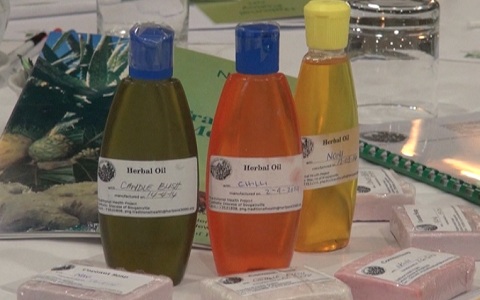You see them popping up on the streets, self-professed healers claiming their traditional herbal medicine can heal diseases, and that western medicine can’t.
Some even claim to rid HIV/AIDS.
The Health Department is concerned with the selling of traditional herbal medicine on the streets.
It’s been found that some of the concoctions are not aiding the healing process, and instead, are making matters worse. As a result, the Health Department is fast tracking regulatory frameworks to help govern and safeguard consumers.
A special workshop was held in Port Moresby to address the problem.
The workshop on the Regulation of Traditional Herbal Medicine aims to bring some order to the calamity. Currently, there is no law governing the commercialization of herbal medicine.
Secretary for Health, Dr. Pascoe Kase told stakeholders that although Papua New Guineans have been using traditional medicine since time immemorial, they must go through proper research and approval by sanctioned organizations before being consumed.
Health experts say herbal medicine can only be used as a supplement, but they have been proven useful for chronic illnesses, Arthritis and Asthma.
Pharmacy expert and professor at the University of Papua New Guinea, Dr Prem Rai, says traditional herbal medicine is an important source of primary health care.
If co-ordinated well, it has huge commercial value. According to unpublished reports, herbal medicine is the only source of health care for 85 percent of PNG’s population that live in rural areas.
According to statistics by the Health Department, there are up to 900 herbal practitioners in country. From 74 different sites throughout the country, Bougainville with the highest.
A national policy on traditional medicine was launched in 2008 but work on the policy goes back to 1999.
https://youtube.com/watch?v=medMG542xGQ%3Ffeature%3Doembed%26wmode%3Dopaque%26showinfo%3D0%26showsearch%3D0%26rel%3D0
previous post


